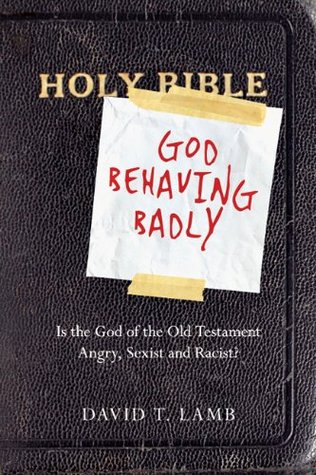More on this book
Kindle Notes & Highlights
Would you want to follow a God that wasn’t passionate about his relationship with you?
hesed is the best kind of love one could imagine.
Fear of tough texts won’t help. If we avoid them, they won’t go away. The only way to understand them is to read, study, discuss and teach them.
Love for people can lead to anger over a broken relationship. Love for people can also lead to anger about injustice.
If it is okay for women to compose sections of the Bible, perhaps we should let them teach it?
Instead of following Jesus’ example of praising women who want to serve, we are often more like the sexist disciples, rebuking women who take initiative.
Men need to bring up the subject more often, and not because it is politically correct, but because it is biblically correct.
Attitudes that denigrate people of a particular race are, therefore, not only racist but also insulting to the God who created all people in his image. Racism ultimately is blasphemous, since the Bible first informs us that the people of each and every ethnicity resemble God himself.
Sex and food were two great gifts God gave the humans.
Most people think of themselves as good, so they assume that in a just world they deserve good things and are troubled when bad comes their way. But Scripture informs us that from God’s perspective no one is good (Ps 14:3; Rom 3:23).
Good things happen to bad people because God is good.
Old Testament feasts weren’t designed to encourage gluttony but simply to remind Israel that God’s generosity was to be celebrated frequently.
both testaments teach that strict obedience to the law in general or to any specific law cannot make us righteous in God’s eyes; only faith in God does that (Gen 15:6; Gal 3:6).
Yahweh’s willingness to change his mind to show mercy wasn’t just a capricious whim, but it characterized his nature.
When our systematic theology comes into conflict with the Bible, the former needs to be modified, not the latter.
God is predictably flexible, constantly changeable and immutably mutable, at least in regard to showing mercy toward repentant sinners.
When God seems distant in the midst of crises and pain, we can pray the psalms of lament. As we follow the pattern of the lament—from doubts and despair to prayer and petition—we eventually arrive at a place of hope, trust and praise.
Yahweh is both stubborn and flexible: stubbornly inflexible about his commitment to bless his people, which is good news, and graciously flexible about showing mercy to repentant sinners, which is great news.
our perspective of God will determine how we relate to God.


